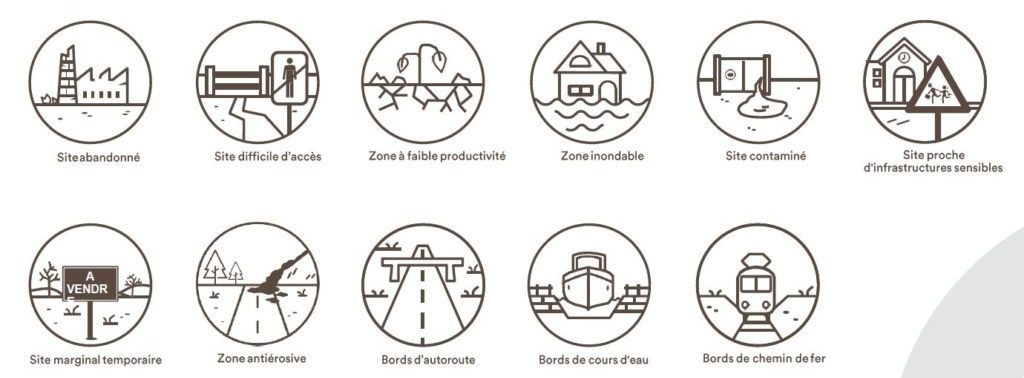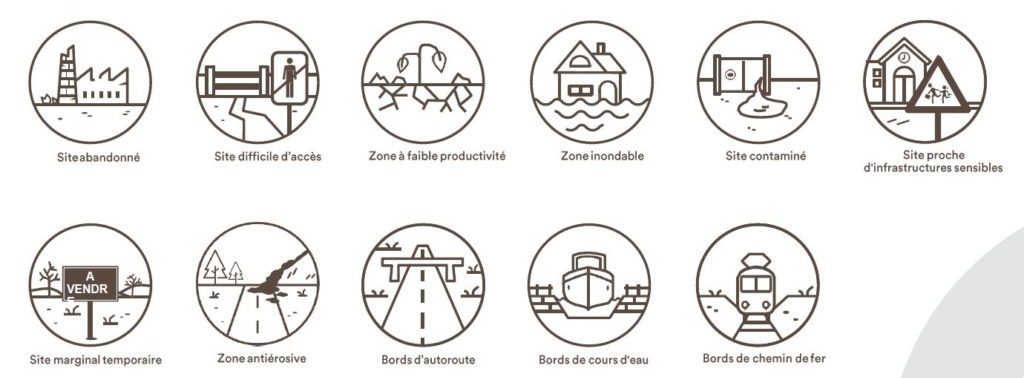New C-Land: a map that brings together biomass users and abandoned site owners

The Interreg New-C-Land project has created an online map that identifies the neglected sites and end-users of biomass. This database, now public, has a double objective: to provide answers to users who wish to source crops and allow neglected site managers to create value for these sites.
What does biomass on a neglected site mean?
In the context of this project, “biomass” refers to plant crops (willow, alder, poplar, miscanthus, hemp …) which can be used in energy or materials. Biomass can be used in multiple sectors that contribute to the economic boom biobased in France and Belgium:
- Bioenergies: anaerobic digestion, biofuels, wood energy.
- Eco-construction: insulation, building materials.
- Management of green spaces, horticultural spaces and market gardeners.
- Biorefinery: extraction of molecules of interest for the manufacture of products
- (pharmacology, cosmetics …).
- Textile: hemp, linen, etc.
A “neglected” site is a site that cannot accommodate real estate projects or food culture, but which can be exploited thanks to the production of plant biomass. Once the site is valued, its marginality becomes an economic and environmental opportunity for its manager.
Find all the useful information on this subject in the explanatory brochure (in French).
New-C-Land cartography
Its objective is to meet the needs of each other and to promote development local biomass sectors (biomethanation, eco-construction, management of green spaces, etc.).
This intuitive and bilingual interface is powered by non-confidential public data, the contribution of users who wish to source plant biomass and the contribution of abandoned site managers who wish to enhance them.
Call to site managers from Belgian and French municipalities
In order to feed this map continuously (which will allow to multiply the planting projects), New-C-Land is launching a call to cities and towns, private owners or site managers. This call aims to encourage them to publicize their abandoned lands and to add them on the map.
Advance local climate action plans
With the boom of the biobased economy, demand for vegetable raw materials is in full swing growth. It is therefore crucial today to consider the spaces that can accommodate cultures in order to to meet future needs and to support the present biomass recovery industries in cross-border areas.
For public entities, for example, to develop their marginal sites with high biomass potential and sustainably produce biomass there represents a positive initiative in favor of a CO2 emissions reduction.
Once referenced, the sites will be able to accommodate plantations which will then be valued and intelligently used by local players and companies.
The concerned sites are sites abandoned for socio-economic reasons (brownfields, eccentric sites, forgotten sites, etc.), low productivity sites, contaminated sites that cannot accommodate food crops or temporary marginal sites (awaiting conversion – at the research projects).

Who is this map for?
The managers bring together municipalities, farmers, industrial stakeholders and individuals looking for tools to enhance their sites in a sustainable way; administrations and ministerial offices taking care of the management of abandoned sites and / or regulating the recovery of biomass; design offices; research and education organizations in the field of soil management; protection of the environment, spatial planning and the countryside.
The user side, meanwhile, brings together operators and service providers in the biobased sector. It also includes end users such as companies that use biomass for the design of products, materials or energies, and research centers and universities active in that sector.
More information?
- The map and the explanatory brochure (in FR)
- The project website: www.newcland.eu
- General contact: info@newcland.eu
- Complementarity of project partners
The post New C-Land: a map that brings together biomass users and abandoned site owners appeared first on Fedarene.
Fuente: FEDARENE
Enlace a la noticia: New C-Land: a map that brings together biomass users and abandoned site owners

